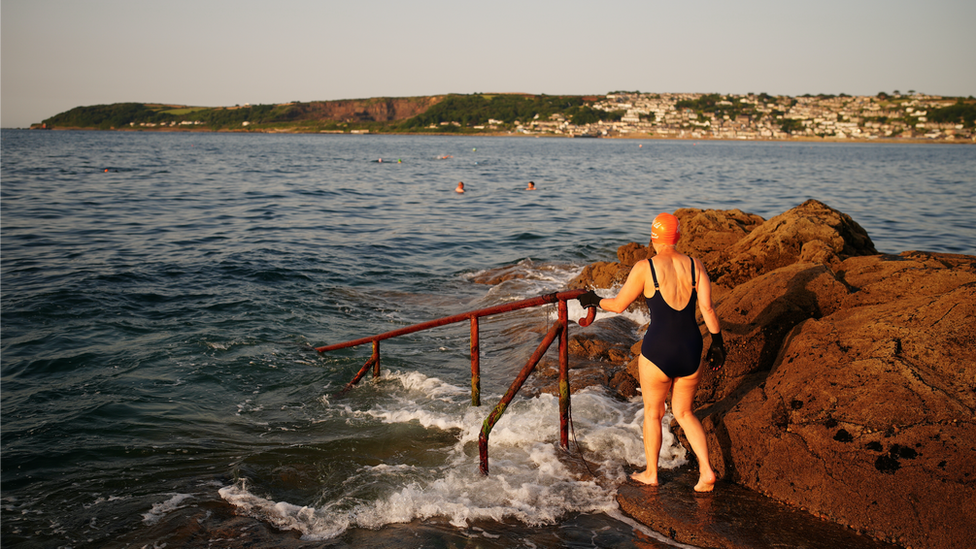Hampshire shark: Appeal for head to be returned
- Published
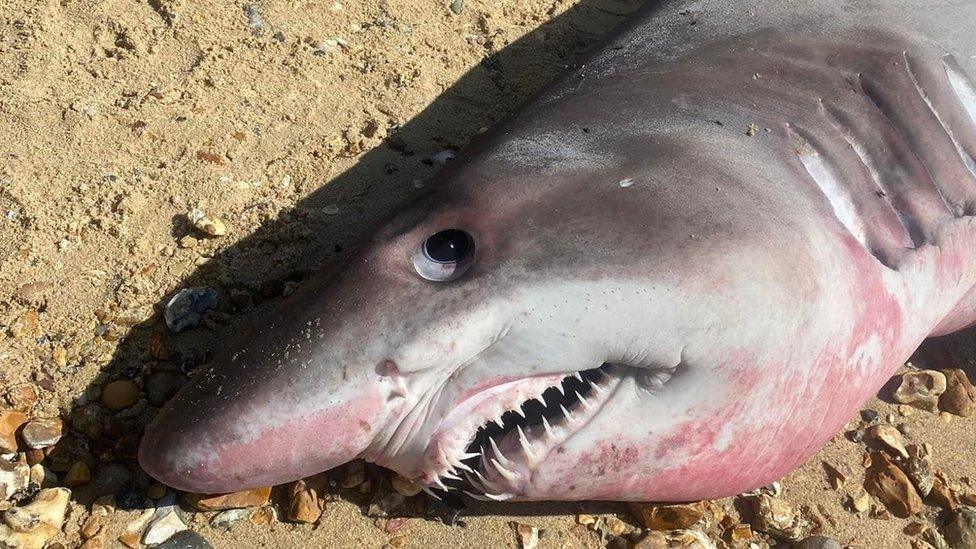
Scientists want access to the head and teeth of the shark, which washed up on a Hampshire beach, for research
A plea has been made to return the head of a rare shark so it can be analysed.
On Saturday, local residents walking on Lepe beach in Hampshire discovered a dead shark which was later spotted without its head, tail and fin.
Broadcaster and historian Dan Snow told BBC Breakfast: "People can keep it but if they can just let the scientists have a good look at it first."
The Shark Trust said the head "holds the key to unlocking intricate details of the shark's life".
Alisha Openshaw filmed her efforts to save a shark but it later died
Mr Snow said it was a "once-in-a-lifetime" discovery of an "incredibly valuable" shark.
"Scientists say that no shark of this species, of this scale - it's well over two metres long - has ever washed up on UK shores before," he added.
"If people want the jaw for their clubhouse or whatever, they can keep it.
"But if they can just let the scientists have a good look at it first, that would be really community spirited of them."
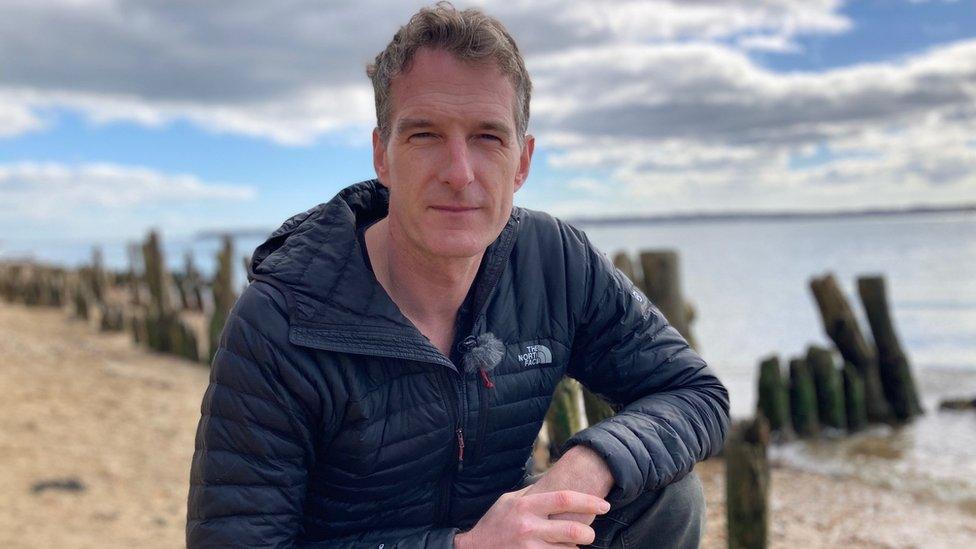
Broadcaster Dan Snow described it was a "once-in-a-lifetime find" in the UK
Mr Snow, who lives near Lepe Beach, was away when people began to spot the dead shark on the beach.
After tweeting about it, he was contacted by scientists who asked him to secure the carcass as they believed the animal could be a smalltooth sand tiger shark - usually found in warmer waters.
By the time Mr Snow got home the shark's head, fin and tail were missing but he and a group of local residents managed to secure the rest of the shark which will be collected by the Zoological Society of London on Tuesday for it to be studied.
The Shark Trust has also issued a plea the head to be returned, describing smalltooth sand tiger sharks as "exceptionally rare visitors" in waters north of Biscay off northern Spain.
Ali Hood, the trust's director of conservation, told the BBC: "Keeping specimens intact is always preferable, especially exceptionally rare encounters like this.
"There is so much we are yet to learn and the head in particular holds the key to unlocking intricate details of the shark's life, even from before birth."She said an example of this was the lenses in a shark's eye which develop in utero, and that "analysis of atoms in the lens, through a technique known as stable isotope analysis, can help identify where a pregnant female was feeding".
On Friday, Alisha Openshaw, 38, had spotted the shark while it was stuck on the seabed close to the shore and went into the water to help it.
"I was fully aware it was a shark," she told the BBC. "It wasn't until I actually got hold of it that I realised how big it was."
With the help of her mother, Ms Openshaw managed to help get the shark swim forwards and it was seen swimming later that afternoon.
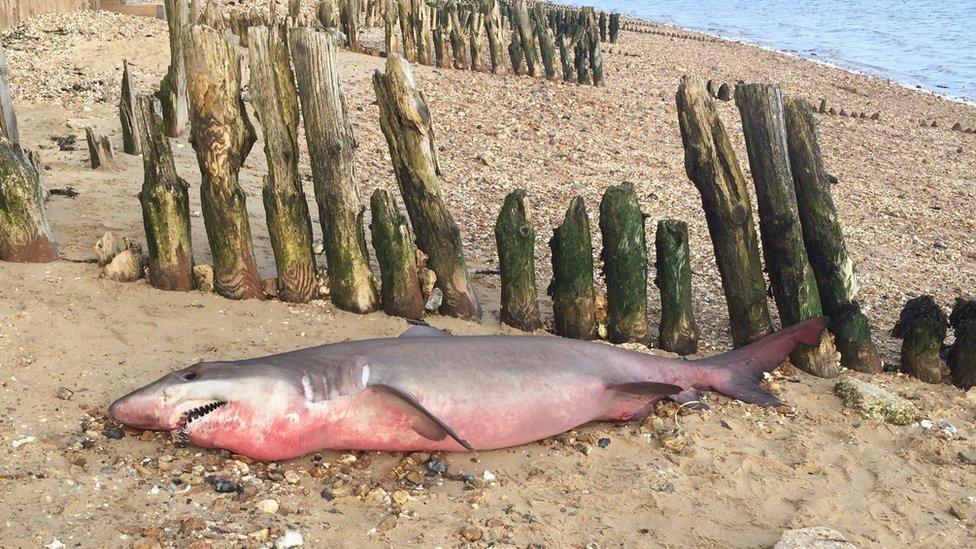
On Saturday, local residents walking on Lepe beach discovered a dead shark intact, before its head, fin and tail were removed
"I honestly thought that he might be alright because he obviously swam off, but then he did turn around and started to swim back towards us so we got out the water," she said.
Speaking about the removal of the shark's head, she added: "It's just as barbaric. I don't understand it and isn't it random that someone has the shark's head in their house at the moment?"
Dr Ben Garrod, a professor in evolutionary biology at University of East Anglia, said it was important for scientists to see the shark as it offered a "snapshot" of animals living in international waters.
"The oceans cover 71 or 72% of our planet, however it's still incredibly mysterious," he told the BBC.
"Every time we see a whale breaching or a shark washing up, this is like finding a Roman hoard or Viking daggers."
He said this species was not typically seen on UK shores and studying it could offer an insight into feeding patterns and water temperatures, depending on how healthy the shark was prior to its death.

Follow BBC South on Facebook, external, Twitter, external, or Instagram, external. Send your story ideas to south.newsonline@bbc.co.uk, external.
Related topics
- Published19 March 2023

- Published17 August 2022
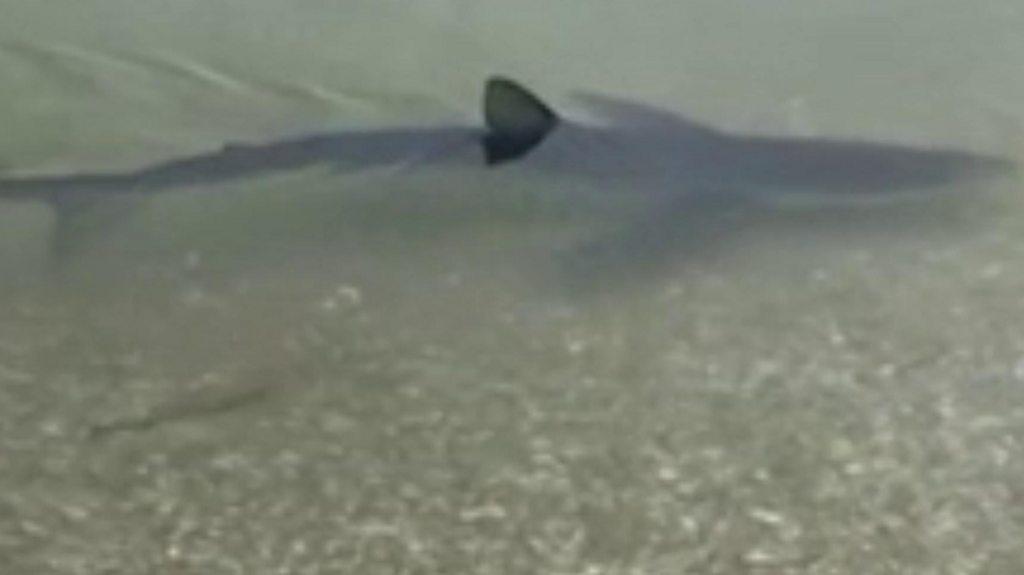
- Published3 August 2022
